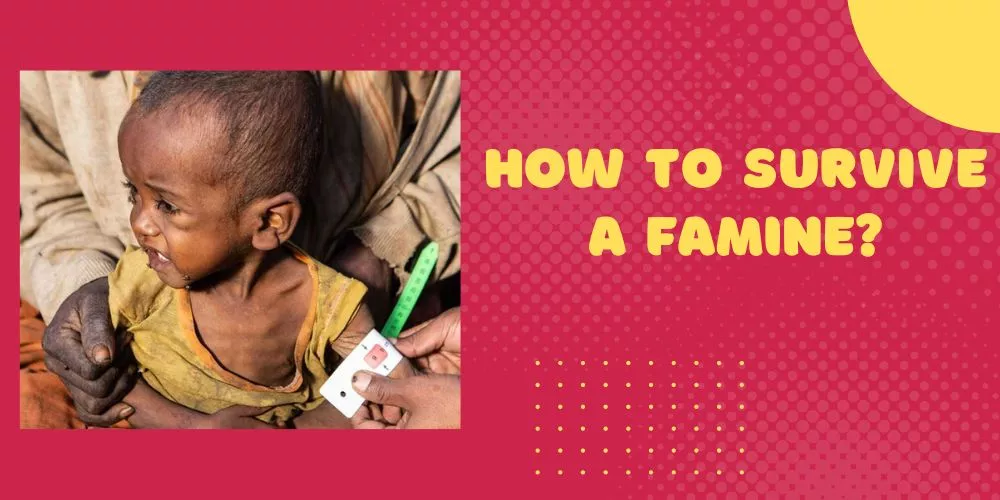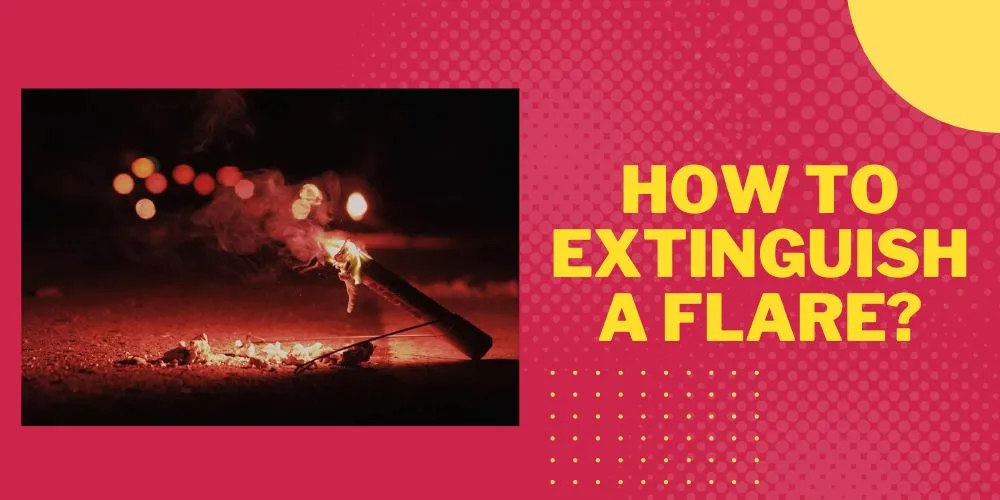Road flares serve an essential role in ensuring road safety, especially during accidents or when vehicles break down on poorly lit roads.
While they are vital tools for creating visible warnings, their disposal is a matter that requires careful consideration.
That’s why it becomes important to know how to dispose of road flares in an effective manner.
This guide delves into the proper disposal methods for road flares, aiming to address environmental concerns and safety hazards associated with incorrect disposal practices.

How To Dispose of Road Flares?
Road flares contain chemicals that, when ignited, produce a bright light. These chemicals can be harmful to the environment if not disposed of correctly. The primary component of road flares is an oxidizing agent, often potassium perchlorate, which reacts with fuel—typically red phosphorus—to produce intense light.
This chemical composition necessitates specific disposal methods to prevent harm to both people and the environment.
Preparation Before Disposal
Before you dispose of any road flares, identify whether they are used, expired, or unused. The condition of the flare affects how you should handle its disposal. Always wear gloves to protect your hands from any chemicals that might be on the flare’s surface.
Step by Step Guide on How to Dispose Road Flares
Disposing of road flares requires attention to detail and a methodical approach to ensure safety and environmental protection.
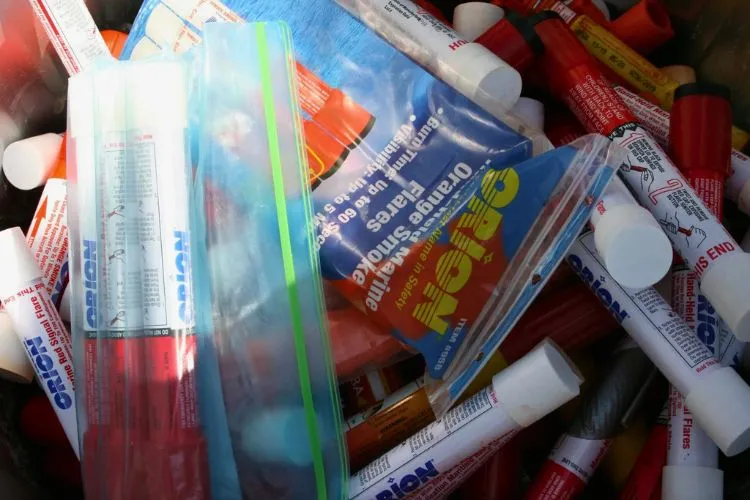
For Used or Expired Road Flares
Used or expired road flares should never be thrown in the regular trash due to their hazardous chemical residue. Here are steps to properly dispose of them:
- Burning out Flares: If safe and legal in your area, you may be advised to burn out road flares completely in a controlled environment. This is often not recommended due to environmental concerns and the risk of fire.
- Hazardous Waste Disposal Facilities: The safest way to dispose of used or expired road flares is by taking them to a local hazardous waste disposal facility. These facilities are equipped to handle such materials safely.
- Contacting Local Authorities: Sometimes, the local fire department or recycling centers offer services or can provide guidance on disposing of road flares correctly.
For Unused Road Flares
Unused road flares, due to their potential for reuse, should be handled differently.
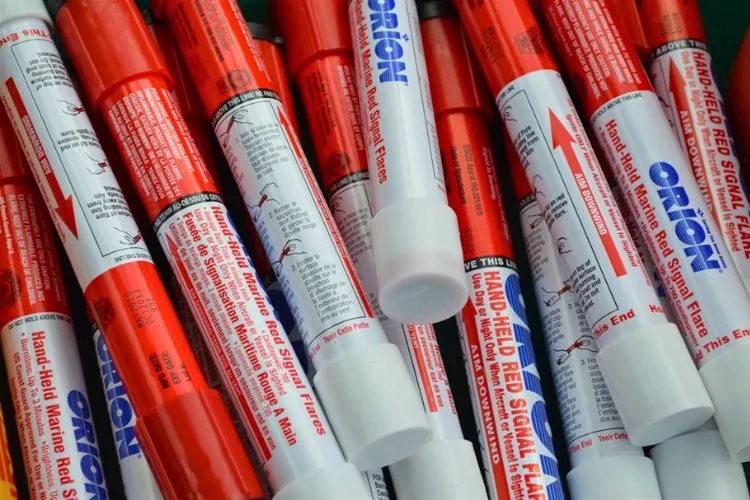
- Safe Storage: If you cannot dispose of unused flares immediately, store them in a cool, dry place away from any sources of ignition or heat until you can transfer them to a proper disposal authority.
- Donation to Local Services: Consider offering unused road flares to local law enforcement or emergency services. Such entities may accept them for training purposes or emergency use.
Importance of Proper Disposal of Road Flares
Correctly disposing of road flares is crucial. The chemicals in road flares can leach into soil and water, leading to environmental pollution. Unsafe disposal practices also pose a significant risk to people and animals who might come into contact with these harmful substances.
Professional Tips and Techniques for Better and Safeguard Disposal
To dispose of road flares safely, always wear protective gloves and a mask if handling used or significantly aged flares. Avoid inhaling any dust from the flares. If transferring flares to a disposal facility, ensure they are securely packed to prevent accidental ignition.
Local Regulations and Guidelines
Abiding by local regulations and guidelines is crucial when disposing of hazardous materials like road flares. Different jurisdictions may have specific rules pertaining to the safe disposal of such items, ensuring public safety and environmental protection.

Infringement of these regulations can lead to penalties such as fines or legal repercussions, emphasizing the importance of legal compliance. In order to understand your local laws and regulations, refer to the official websites of your local or regional government.
For more precise information, contact your local waste management authorities. These organizations can provide detailed instructions and proper disposal methods aligned with governmental guidelines.
Furthermore, state or provincial environmental agencies can yield essential insight into environmentally friendly practices. Keep informed and respect these regulations to help sustain your community’s safety and environmental health.
Safety Tips When Using Road Flares
Using road flares involves handling with care to prevent accidents or injuries. Follow these safety tips:
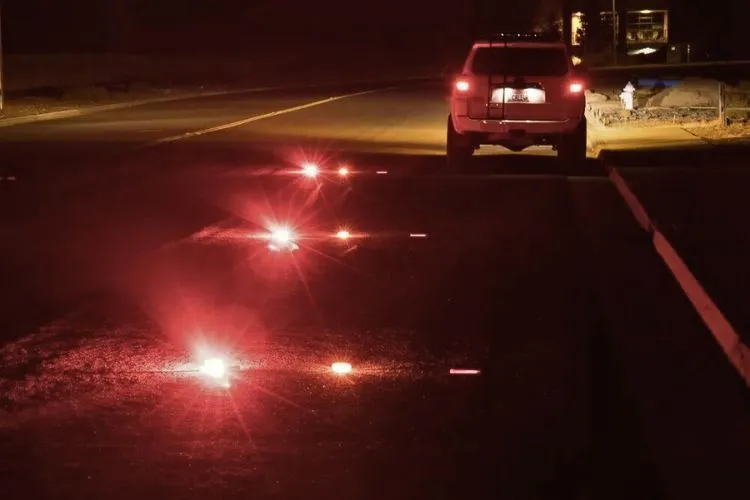
- Read Instructions: Always read the manufacturer’s instructions before use.
- Wear Protective Gear: Use gloves and eye protection to shield from sparks and chemicals.
- Lighting Procedure: Stand away from traffic and the flare; light it at arm’s length, keeping your body out of the line of fire.
- Placement: Place flares at a distance from vehicles and flammable materials; ensure they’re visible to oncoming traffic.
- Avoid Inhalation: Stand upwind while lighting or placing the flare to avoid inhaling smoke.
- Supervision: Never leave lit flares unattended.
- Disposal: Ensure the flare is completely burned out and cool before attempting disposal.
First-Aid Tips
- Burns: For minor burns, cool the area under running water, cover with clean cloth. Seek medical attention for serious burns.
- Chemical Exposure: If chemicals from the flare come into contact with skin, rinse immediately with plenty of water. For eye exposure, rinse eyes for at least 15 minutes and consult a doctor.
- Inhalation: Move to fresh air promptly if smoke is inhaled and seek medical advice if breathing difficulties occur.
Adhering to these guidelines will minimize risks while using road flares, ensuring your safety and the safety of others.
Frequently Asked Questions (fAQs)
Can road flares be recycled or composted?
No, road flares cannot be recycled or composted due to the harmful chemicals they contain.
What should one do if they can’t find a disposal facility nearby?
If a local disposal facility is not available, contact your city or municipality’s waste management department for guidance.
Could improperly disposed road flares pose a significant threat to the environment?
Yes, improperly disposed of road flares can contaminate soil and water, posing a threat to wildlife and the environment.
Are there legal implications to incorrectly disposing of road flares?
In many jurisdictions, there are. Incorrect disposal of hazardous materials, including road flares, can result in fines or other legal consequences.
How should one handle road flares to ensure their safety during disposal?
Handle with care, avoid direct contact with skin, and do not inhale any dust. Store them safely until you can dispose of them properly.
Conclusion
Proper disposal of road flares is critical to environmental safety and public health.
By following the guidelines outlined in this article, individuals can ensure they are responsibly handling the disposal of road flares, thereby contributing to the safety and well-being of the community and the planet.
It is everyone’s responsibility to dispose of hazardous materials, like road flares, thoughtfully and correctly.

